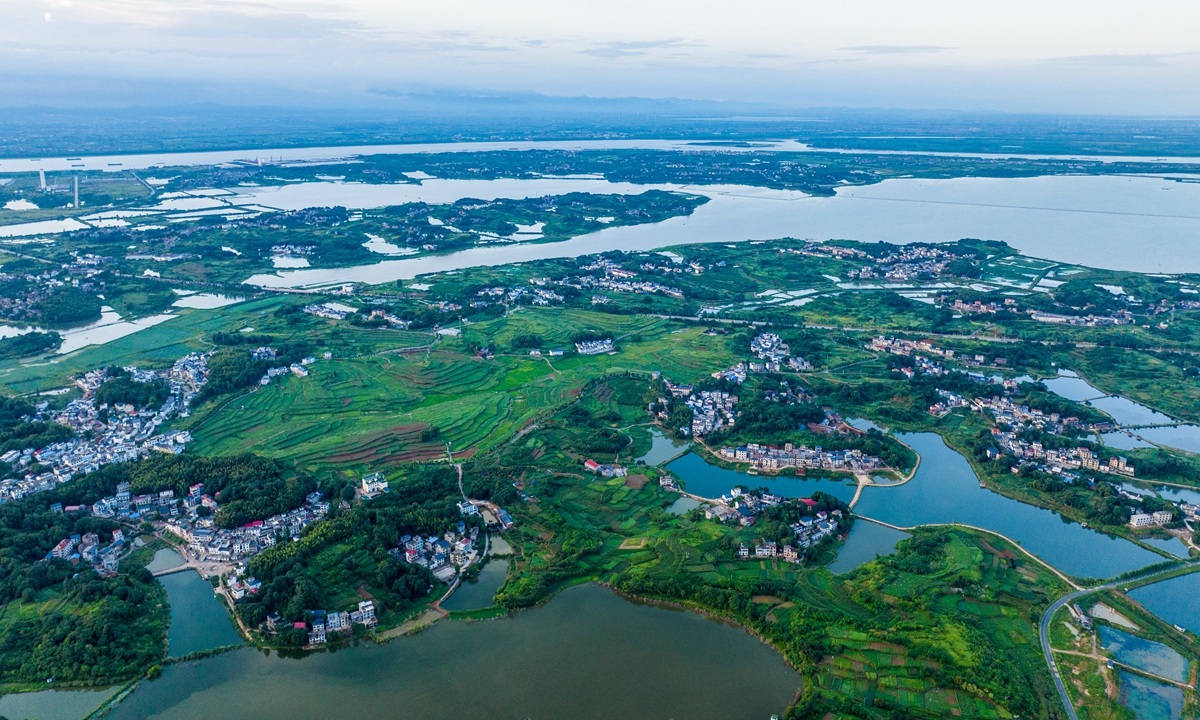
Photo: VCG
For the past week, I've been in the Chinese capital, Beijing, for the first time. I must admit that based on the antiquated view of China that many Americans have and discuss publicly, I expected the city to be smoggy and congested. To the contrary, it has beautiful blue skies.
China has been successful in beautifying Beijing, as well as other cities and towns, by transitioning from coal power to gas, establishing emission standards for coal-fired stations, implementing tougher standards for other industries such as steel and cement and seeking high-quality development with a high-quality ecological environment. These achievements have been so successful that Beijing now stands as an example for mega-cities around the globe, particularly those in the global south.
The situation in Beijing serves as a microcosm of why China is considered a model for the world. This is not only due to its ambitious climate goals and pioneering green sector but also because of the significant efforts and changes the country has made.
Chinese President Xi Jinping stressed efforts to promote the building of a Beautiful China in all respects and accelerate the advancement of modernization featuring harmony between human and nature, addressing at a national conference on ecological and environmental protection held from Monday to Tuesday. Noting that China's economy and society have entered a stage of high-quality development marked by faster progress in promoting green and low-carbon growth, Xi called for a higher standpoint, a broader perspective and stronger efforts in planning and advancing ecological and environmental protection on the new journey, as well as writing a new chapter of ecological conservation in the new era.
While reiterating China's unswerving commitment to peak its carbon emissions before 2030 and attain carbon neutrality before 2060, Xi insisted that the pathways, methods, pace and intensity of work to reach these goals "should and must be" determined by China and be free from outside interference.
It was believed by analysts that this was directed at the US, whose climate envoy, John Kerry, was in Beijing for talks with his Chinese counterpart. Kerry reportedly called on China to curb its emissions quickly, despite the fact that the US has the highest historical emissions of any country by an extremely wide margin and has among the worst current per capita emissions.
Addressing the first point, the concept of a Beautiful China is important: Human beings are born of this Earth and will die with it. We cannot seek endless economic growth that necessarily plunders and destroys the planet. Such a reckless developmental model would be suicidal and irresponsible for the sustenance of organized human life. This is not only because of the existential threat of climate change but because of the hazards of pollution and deforestation.
As I already described with the Beijing anecdote, China has already taken bold steps to beautify the country for decades. It is also setting the stage for high-quality growth that will be able to advance the standard of living of the Chinese people while leaving less of an ecological footprint. As The Guardian reports, China is on pace to break its wind and solar goals five years ahead of time. As Forbes noted, in 2021 China connected more offshore wind generation capacity than every other country in the world managed to install in the last five years, and it's building even more this year. If there was any doubt regarding whether China was already addressing the threats of climate change and pollution with a comprehensive societal response, President Xi's remarks unequivocally provide the answer: a resounding "yes."
Similar to how Beijing serves as a case study for mega cities in the global south, the concept of Beautiful China has a universal appeal, extending to a Beautiful World. However, each country must tailor its own approach to suit its specific circumstances and development needs. Nevertheless, China's new regulatory framework could serve as a foundation for countries in the global south to learn from. It is hoped that China will document its experiences and share its expertise in multilateral platforms, such as the upcoming and highly significant COP28, as well as through people-to-people exchanges.
The author is a Prague-based American journalist, columnist and political commentator. He is now traveling in China. opinion@globaltimes.com.cn




